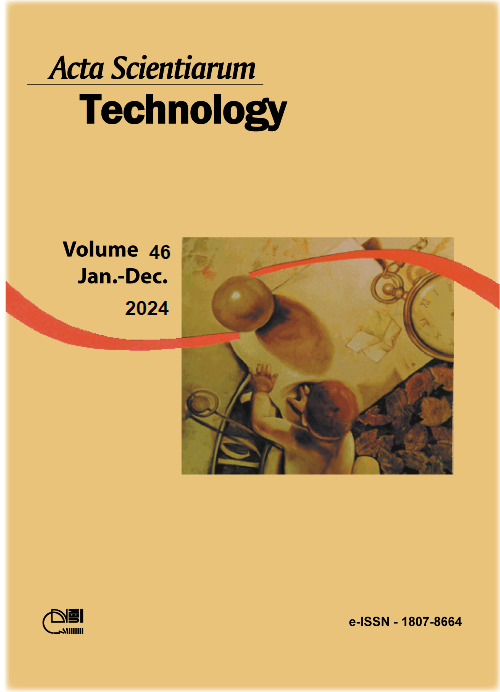Evaluation of the use of a biofilter made with biodegradable material for biogas desulfurization
DOI:
https://doi.org/10.4025/actascitechnol.v46i1.67018Palavras-chave:
biogas; H2S removal; desulfurization; biofilter; renewable energies.Resumo
Biogas is a promising energy source with the potential to contribute to greenhouse gas emission reduction. In addition, it can be produced from waste biomass and has various applications. However, contaminants have to be removed before use. Hydrogen sulfide (H2S) is perhaps the most critical because of its toxicity and corrosive properties. In this study, we evaluated a prototype of a biofilter for biogas desulfurization made of coconut chips as packing media and digester effluent as a nutrient source. The composition of inlet and outlet biogas was evaluated through gas chromatography in five tests. The maximum desulfurization efficiency observed was 75.80%, but with a considerable variation (mean of 43.08%). Microscopy analysis of the packing media before and after the experiments demonstrated the accumulation of substances and the presence of new elements. Nevertheless, more studies are necessary with longer duration and frequency for a better evaluation of the system stability and saturation.
Downloads
Downloads
Publicado
Como Citar
Edição
Seção
Licença
DECLARAÇíO DE ORIGINALIDADE E DIREITOS AUTORAIS
Declaro que o presente artigo é original, não tendo sido submetido í publicação em qualquer outro periódico nacional ou internacional, quer seja em parte ou em sua totalidade.
Os direitos autorais pertencem exclusivamente aos autores. Os direitos de licenciamento utilizados pelo periódico é a licença Creative Commons Attribution 4.0 (CC BY 4.0): são permitidos o compartilhamento (cópia e distribuição do material em qualqer meio ou formato) e adaptação (remix, transformação e criação de material a partir do conteúdo assim licenciado para quaisquer fins, inclusive comerciais.
Recomenda-se a leitura desse link para maiores informações sobre o tema: fornecimento de créditos e referências de forma correta, entre outros detalhes cruciais para uso adequado do material licenciado.



















